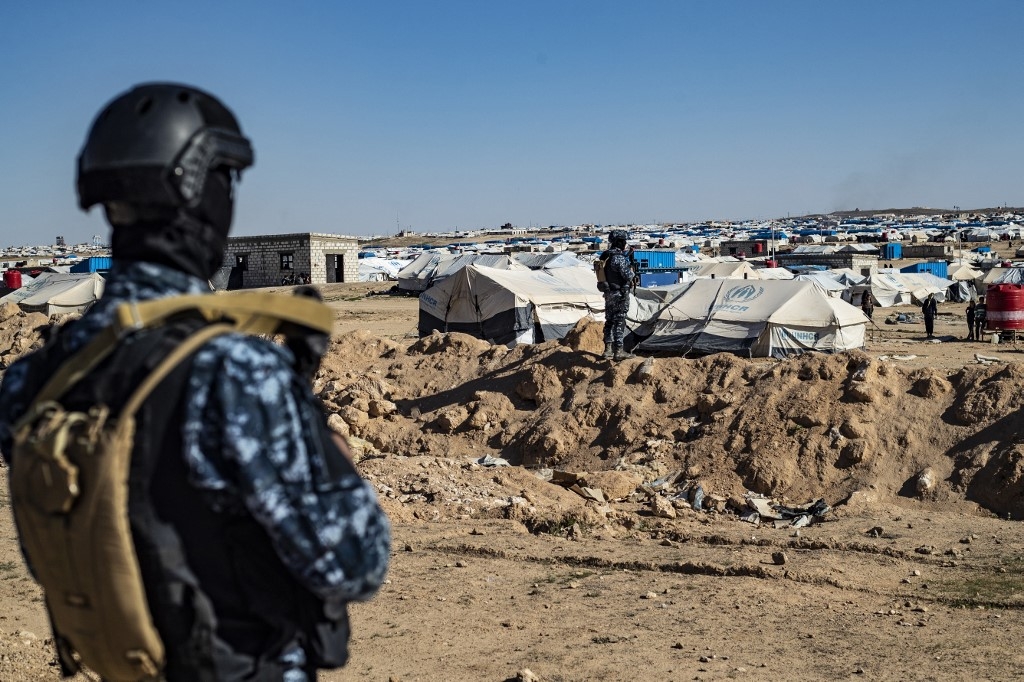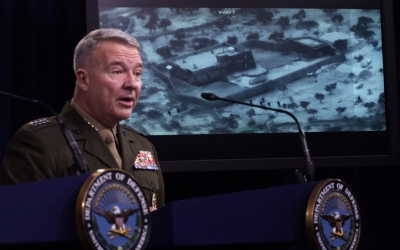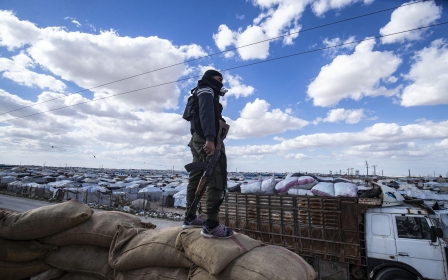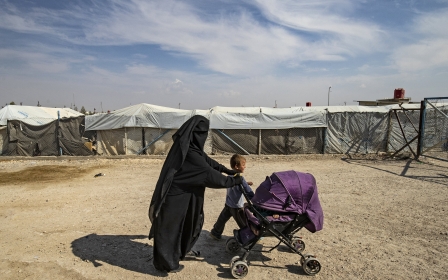Security at Syria's al-Hol camp drastically improves after arrest sweep, says official

A US-backed arrest campaign which swept through Syria's largest camp for the relatives of suspected Islamic State (IS) members has made a significant impact on preventing violent incidents at the facility, according to a camp administrator.
Security at the overcrowded northeast Syria facility had drastically improved in recent weeks, Jaber Mustafa, head of public relations at al-Hol camp, told the Associated Press.
'The security and humanitarian campaign... brought stability and security'
- Jaber Mustafa, al-Hol camp public relations head
A coalition of Kurdish forces, assisted by the US military, carried out a five-day sweep of al-Hol camp in late March, arresting at least 125 people suspected of involvement in murders and of spreading extremist ideology.
The UK-based Syrian Observatory for Human Rights reported that at least 40 people had been murdered in al-Hol during the first three months of 2021. While Kurdish authorities alleged that IS sympathisers were behind most of the killings, humanitarian agency sources suggested tribal disputes could be behind some of the incidents.
Since the security sweep, however, only one murder and one attempted murder have been reported, according to the public relations head.
New MEE newsletter: Jerusalem Dispatch
Sign up to get the latest insights and analysis on Israel-Palestine, alongside Turkey Unpacked and other MEE newsletters
"The security and humanitarian campaign succeeded at a level of about 85 percent and reduced crime and brought stability and security," Mustafa said, as quoted by AP.
The US Department of Defense did not respond to Middle East Eye's request for comment regarding the camp's updated security measures.
Covid vs security
Meanwhile, the spread of Covid-19 at the overcrowded facility remains a top concern among US and local officials, who say the spread of the disease has made it difficult to control and administer the camp. At the same time, Mustafa said the security situation had complicated access by aid groups attempting to mitigate the virus' spread, creating a dangerous cycle.
Last week, General Kenneth McKenzie, the US military chief in the Middle East, said the security situation at the camp and others like it was one of his top regional concerns. While the spread of disease at the camp was a "tactical problem" that should worry the US and other actors, he said the spread of IS ideology was the "more strategic problem".
The general warned that children "in particular" were being radicalised by IS sympathisers within the camp and warned that "unless we find a way to repatriate them and reintegrate them and deradicalise them, we're giving ourselves the gift of fighters five to seven years down the road".
If not dealt with delicately, the general said thousands of youths may grow up to be the next major threat to the region.
"It might seem kind of strange for a commander to worry about that, but I do because it will be a military problem in a few years if we don't fix the non-military aspects of it now," he said.
Most of the 63,000 people held at the al-Hol camp are women and children from Iraq and Syria, according to the United Nations. However around 7,000 minors held there are believed to be the children of foreign IS fighters.
While Kurdish officials have long warned that the camp is emerging as a breeding ground for extremism, regional and other foreign powers have been hesitant to accept and repatriate their citizens from al-Hol and other similar facilities.
Middle East Eye delivers independent and unrivalled coverage and analysis of the Middle East, North Africa and beyond. To learn more about republishing this content and the associated fees, please fill out this form. More about MEE can be found here.





